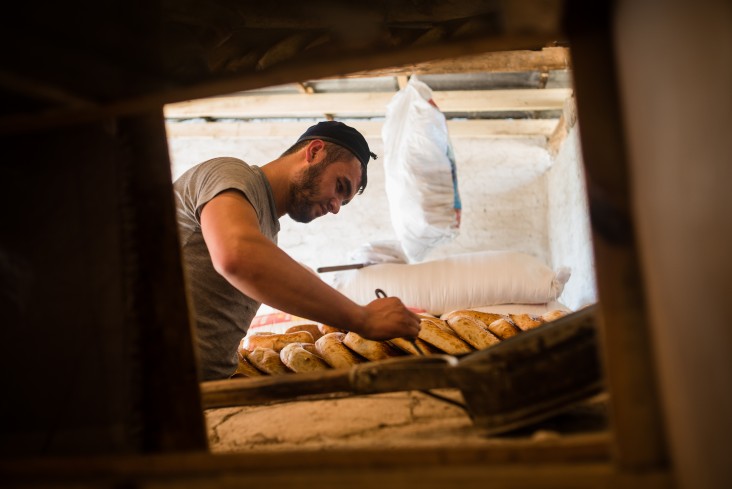Speeches Shim

Duration: October 2015 – September 2020
Budget: $1,800,000
Implementing Partner: International Organization for Migration (IOM)/ The UN Migration Agency
Key Partners: State Migration Service under the Government of KR, Ministry of Labor and Social Development of KR, Ministry of Internal Affairs of KR, Ministry of Foreign Affairs of KR, Local Non-Governmental Organizations (NGOs); Public Organizations (POs); Community-Based Organizations (CBOs); Trade Unions; Ombudsman Institutes; Mass Media; Human Rights Activists
Activity Locations: Kyrgyz Republic
The Dignity and Rights project is designed to protect migrants and potential migrants from human trafficking and other grave human rights violations. It also helps those who have been taken advantage of to safely return home and rebuild their lives.
MAJOR FOCUS AREAS
Increasing public knowledge about and support for human rights. The project works very closely with migrants or potential migrants so that they know their rights well in order to stay safe.
Equipping the government and various non-governmental organizations (NGOs) with necessary tools and knowledge to support survivors of human trafficking. The project works with government agencies and NGOs to increase the country’s ability to prevent human trafficking and support survivors of human trafficking when they return home. This work includes providing financial support to victims, organizing psychological assistance, training of specialists, updating laws or regulations, etc.
IMPACT AND RESULTS
- Safe Migration social media pages reached nearly 1,000,000 people with various information about safe migration practices and the risks of human trafficking since the start of the project in 2015. Internet sources are critical for migrants looking for information, as it’s a second ranking source for information on migration after the nearest community. These accounts are managed by partner NGOs that were trained on social media management as part of the project.
- Nearly 12,000 people received guidance and advice on safe migration through a free telephone hotline from the beginning of the project.
- More than 419 human trafficking survivors received assistance such as grants for starting a business, medical assistance, professional training, psychological support, recovery of lost documents, etc. This kind of support is critical for victims of human trafficking so that they can reintegrate in their communities and resume a normal life at home.
- The project also greatly contributed to capacity building of journalists, bloggers, and communication specialists from state offices. Journalists, bloggers and communication specialists learned about media roles on representation of migrants through media and learned about migrant friendly terms. The migrant centered approach presented during the trainings was embraced by a number of journalists and media outlets that promotes migrant-friendly language. The migrant friendly language contributes to fighting the stigmatization and xenophobia towards migrants abroad and migrants returned to their home.
- Research developed within USAID Dignity and Rights project on internal migration serves as a source for data and contributing to the development of new migration policies in the Kyrgyz Republic. The research shows how different categories of migrants can be motivated by different factors. For example, men are more motivated by economic reasons; women by family reasons and youth are more attracted to infrastructure and living conditions.

Comment
Make a general inquiry or suggest an improvement.